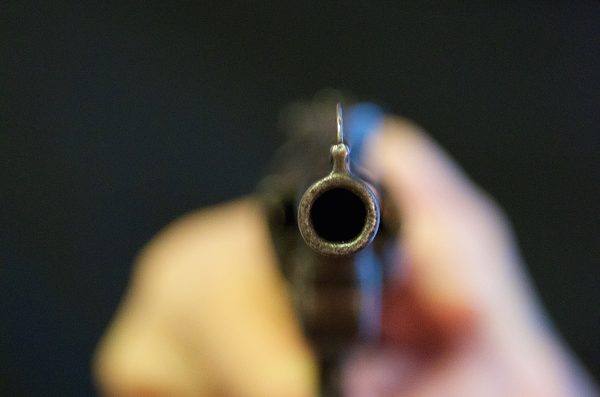Suicide by Cop: Researcher Expands Knowledge of Critical Issue

Vivian Lord opened her mail one winter day 16 years ago, and found a letter from an inmate describing his unsuccessful attempt to force police officers to shoot and kill him.
Media coverage of Lord’s pioneering research — Suicide by Cop — had caught the inmate’s attention. He told her about a life of drug abuse and self-destructive acts.
What Lord learned from him, and what she has uncovered in her subsequent years of research, has contributed significantly to the understanding of the phenomenon called SbC.
“There still exists just a small core of us who work in this area, but I think we’ve done a good job of posing some thoughtful questions and testing different models,” said Lord, Ph.D., a licensed practicing psychologist and full-time professor in UNC Charlotte’s Department of Criminal Justice and Criminology.
Lord’s research has resulted in academic papers, expert witness consulting and testimony and two books, including a second anthology published this spring by Looseleaf Law, Suicide By Cop: A Comprehensive Examination of the Phenomenon and its Aftermath.
“I think that anyone involved in law enforcement, particularly with internal affairs, with prosecution, or with defending officers either from criminal or civil charges, needs to be aware of the potential of what can happen in the use of force,” said George Franks, who retired in 2014 as district court judge in Cumberland County and also is a practicing psychologist and contributor to the book.
Another contributor, Tammy Hatley, drew on her experiences during her 30-year career at Charlotte-Mecklenburg Police Department, with 22 of those years as a SWAT negotiator and supervisor. Hatley earned her bachelor’s degree in criminal justice and master’s degree in liberal studies from UNC Charlotte and retired from CMPD in 2012.
 “Suicide by Cop takes so many different forms,” Hatley said. “It can be a person directly confronting police, saying, ‘This is what I want you to do.’ Or, it can be very discreet, and no one is able to recognize it until after the fact when the investigators are processing the scene and find a note.”
“Suicide by Cop takes so many different forms,” Hatley said. “It can be a person directly confronting police, saying, ‘This is what I want you to do.’ Or, it can be very discreet, and no one is able to recognize it until after the fact when the investigators are processing the scene and find a note.”
Hatley sees particular importance for police training officers to understand the phenomenon so they can prepare responding and supervising officers, 911 Center personnel and first responders such as emergency personnel.
Lord has analyzed reams of data from national databases that include hostage/barricade, suicide, kidnapping, and attempted suicide incidents. Lord also has interviewed dozens of officers and others involved in possible SbC scenarios
“One of the questions that is central to this research is, are individual cases Suicide by Cop or are they not?” Lord said. “Did the victims encounter the police as they are committing a criminal offense and they’re just trying to get away, so they shoot at the police in order to get away? Or are they really trying to induce their deaths? And, if we assume by their behaviors that they are inducing the police to kill them, is it a rational thought or is it an irrational thought, and does that matter?”
Researchers D. Best, A. Quigley and A. Bailey developed a model that Lord has modified to consider such questions. The model takes into account primary indicators, including explicit communication of suicidal intentions, showing a weapon and deliberately engineering contact with the police.
Secondary indicators also are evaluated, including a history of suicide attempts and police contact through a criminal act or service of a warrant. Four state factors, such as evidence of irrational thought, and two discriminatory factors are considered as well.
The victims are usually dead so information about these indicators must be deduced from psychological autopsies.
After the first book came out, a detective in Miami called Lord and told her that the book had saved his life. The information in the book about Suicide by Cop and its impact on involved police officers helped the detective realize he wasn’t alone. His story also is in Lord’s second book.
For Lord, such stories are much more than simply fodder for her research and her writing. “I want to write something I feel is necessary,” she said.